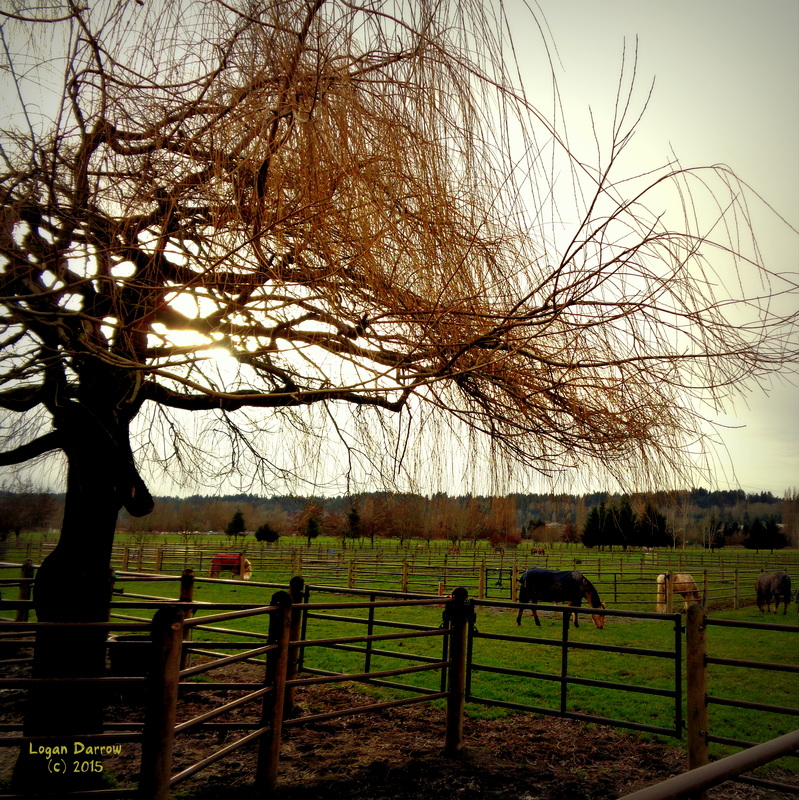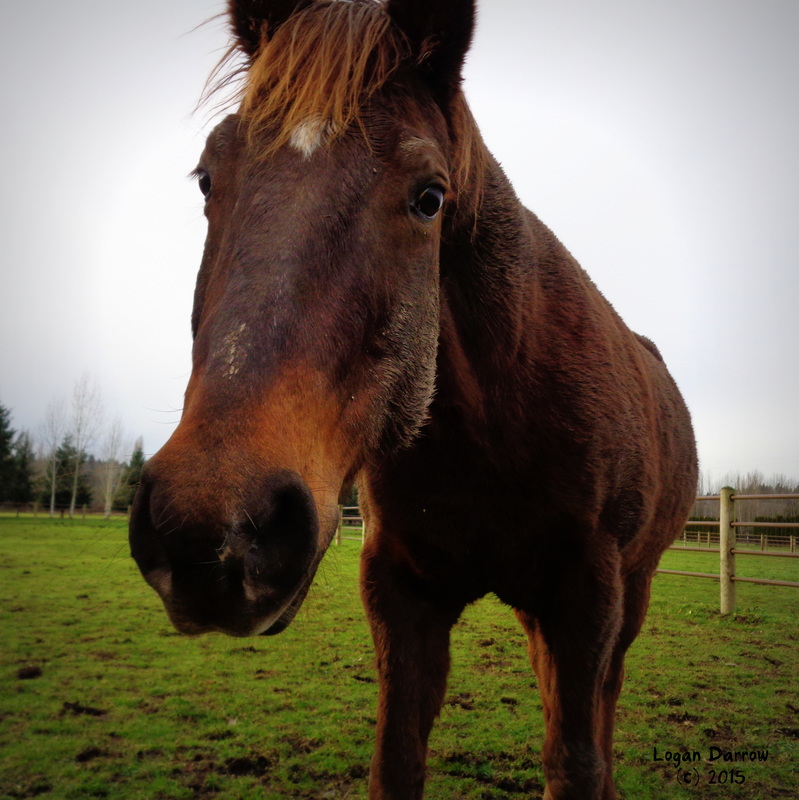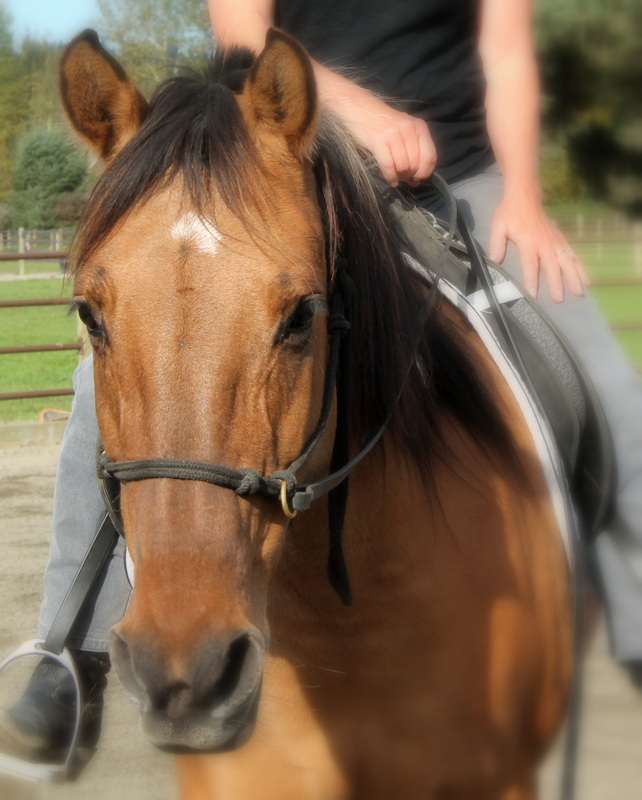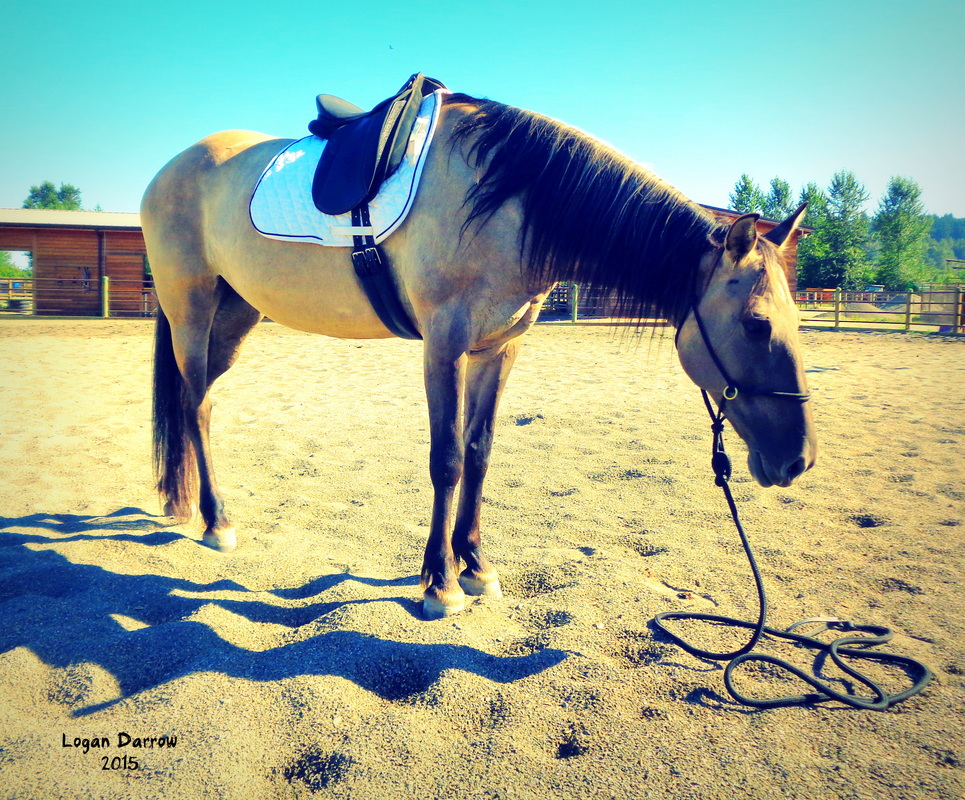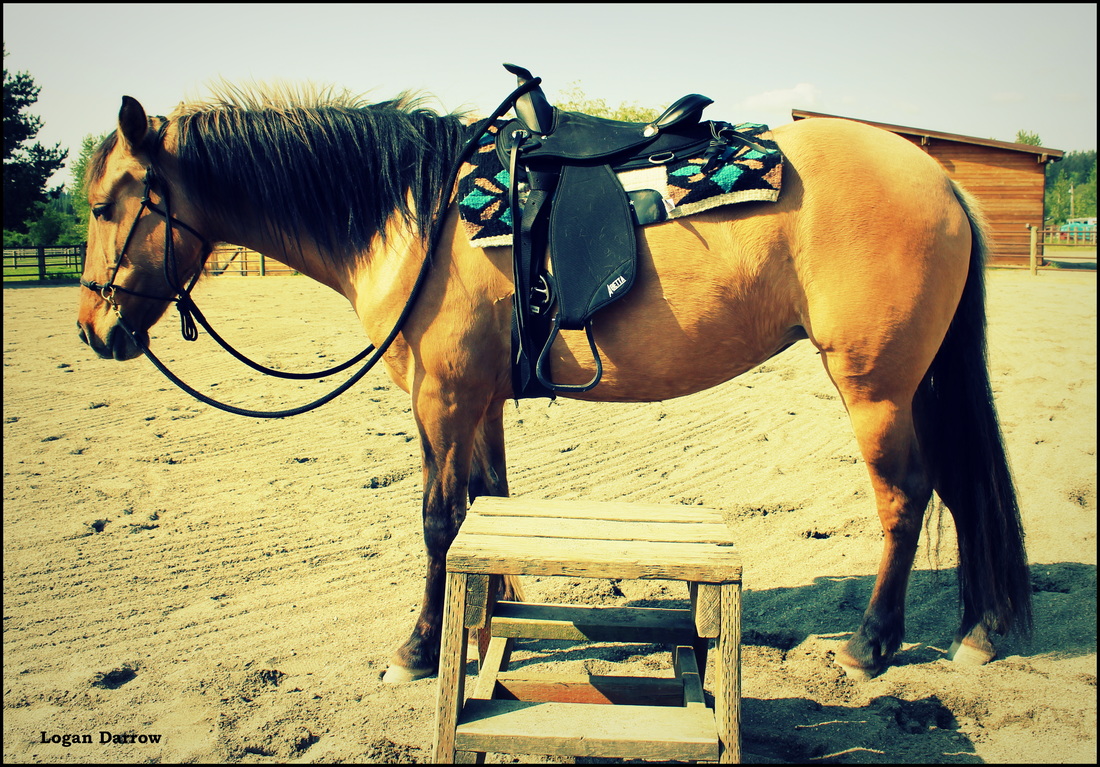An Excellent Source for Developing Comfortable, Competent RidersI don’t teach horseback riding, but I really admire those that do, especially those who teach beginning riding, as a good start in anything is so important. Being good at something is one thing; being able to teach that skill to others requires a special gift, and Gincy Self Bucklin was blessed with that gift. Her book “The Gentle Art of Horseback Riding” is a must have for riders at all stages and abilities, as well as a textbook quality reference for riding instructors. Let me start out my review by noting that Gincy Bucklin is my aunt, but I don’t think this makes me biased – it makes me lucky! And I can personally guarantee that not only is she a top notch horsewoman, she genuinely wants people to be successful and happy with their horses, and for horses to be successful and happy with their riders. "Hands on experience is the best teacher, and Gincy transmits this knowledge and experience through The Gentle Art of Horseback Riding" ~ George H. Morris ~ Right from the beginning in the preface, Gincy makes sure that riders understand that unlike sports that use balls and other equipment, a horse is not an inanimate object – our errors as riders can damage a horse. Riding done well must be comfortable for both horse and rider, and the horse has a contribution to make as a teacher. Click on Read More below the photo to learn more. This charming childhood photo of Gincy Bucklin having fun with her Shetland pony stallion "Shoebutton" is from my personal collection of Self Family photos.
0 Comments
Start Your Day Focused and BalancedWhat does meditation have to do with horse training? Well, for me, meditation has to do with everything. It’s the first thing I do after breakfast. If I skip it for some reason, the rest of the day feels slightly “off.” Two or three days in a row without meditation, and I am sliding down into irritability mixed with lethargy – not a very good state to be in. And we don’t want to be working with an animal that weighs half a ton if our emotions and energy are not at their peak performance levels. In meditation we discover our inherent restlessness. Sometimes we get up and leave. Sometimes we sit there but our bodies wiggle and squirm and our minds go far away. This can be so uncomfortable that we feel it’s impossible to stay. Yet this feeling can teach us not just about ourselves but what it is to be human ~ Pema Chödrön ~ But - you say - I’ve tried it, it didn’t work, I can’t sit still, I can’t shut my mind off, I don’t have time. Please read the Pema Chödrön quote above again, it's perfectly normal to have that experience. And I’m going to call bullshit on the “time” objection by including several ten minute guided meditations in my list – and if even ten minutes is too long, you can find five and even three minute meditations on YouTube. As for shutting your mind off, don’t worry about that. These are guided meditations, just listen to the voice, if you mind wanders off ~ it wanders off ~ just let it come back again. If you don't like the voices, YouTube has anything you want instead: classical music, bells, singing bowls, water, rain, ocean waves - whatever helps you to just take a little vacation in your mind, so you can continue on with your day mentally and emotionally refreshed. There are no meditation police coming to get you for doing it wrong. There is no right and wrong, there is just the DOING that matters. Click on Read More below to go to the list. Note: don't ponder on this Voltaire quote for too long, I just chose it because I thought it might make me sound smarter than I am. And How I’ve Been an Inconsiderate AssI leave my crap all over the place at the barn. My grooming tote gets left by the round pen. I leave my trail saddle on the arena fence, and my dressage saddle on the stall door next to my tack locker. My halter and lead ends up hanging on any of a dozen random fence posts. My crop gets dropped on the ground in the arena, my water bottle abandoned on the mounting block, my sweatshirt flung on another random fence post. I have left my sunglasses next to the sink in the kitchen area, and my bucket and sponge next to the hose. At one time or another, all of these items have been misplaced, by me, and would likely be lost forever except for some unkown fairy godperson picking them up and putting them someplace safe. My mother used to tell me I would lose my head if it wasn’t screwed on tight. How Meditation can Improve Your Relationships with HorsesA frequent topic discussed on horse training groups is “I know I am supposed to leave my emotions at the door, but I have trouble not getting frustrated with my horse. How do I keep from getting frustrated? All sorts of good answers are usually given in the replies: reminders that it is not the horse’s fault, that training is a process, don’t take it personally, expectations are the cause of frustration, progress is being made even if we don’t see it, forgive yourself your mistakes, get someone to help you. Again, all good answers for people who find their blood pressure rising when things aren’t going well with their horse. But what if we had no feelings of frustration or anger that had to be fixed in the moment? “An ounce of prevention is worth a pound of cure” so why not calm our emotions before we even start. How do we truly leave negative emotions at the door, or more exactly, at the arena gate. The horse* is not the source of your frustration – you are the source. You carry that frustration within you, like a seed. You know this intellectually, you just have to learn it emotionally too. Trainer and clinician Warwick Schiller tells us “The horse needs to know the answer before we ask the question.” This means: we can’t expect a horse to respond correctly to something we ask him to do unless we have TRAINED that response first. We can train our emotions in the same way. “Our emotions need to know the answer before we ask the question,”
the question being, “Things aren’t going the way you want them to go – how do you feel about that?” |
Your email address will be kept private.
Email me directly at
[email protected] 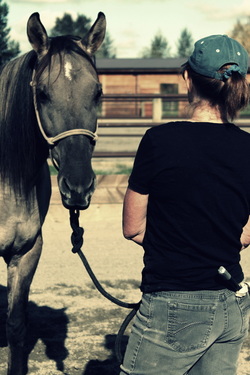
Archives
September 2018
Categories
All
|
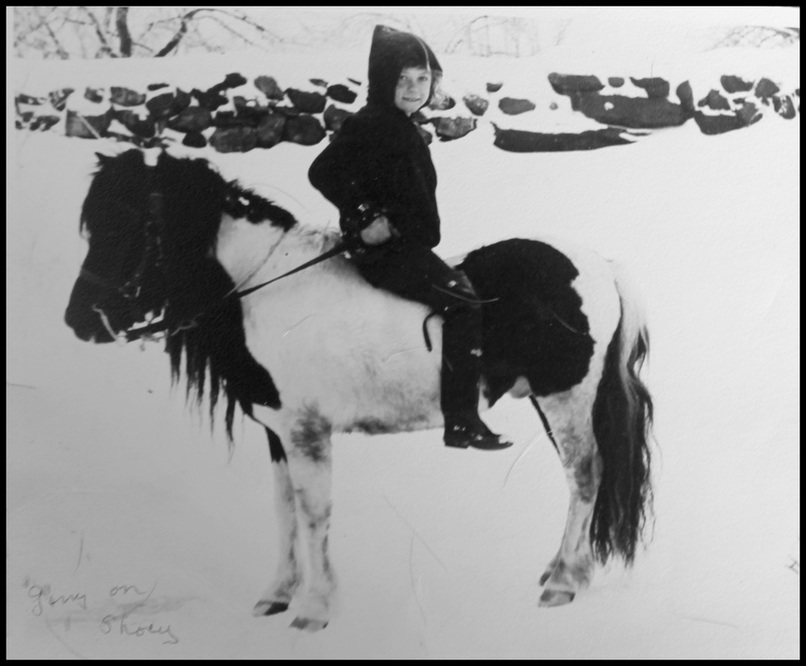
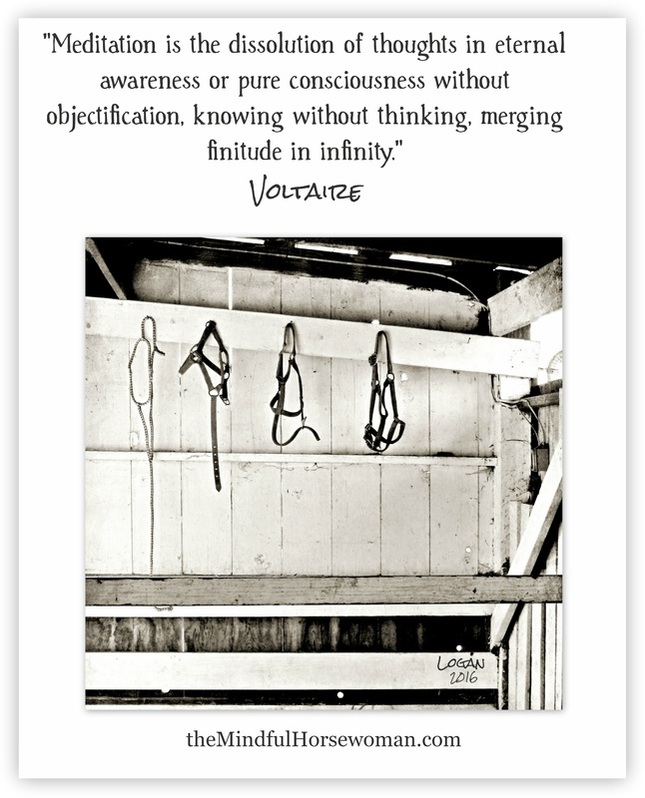
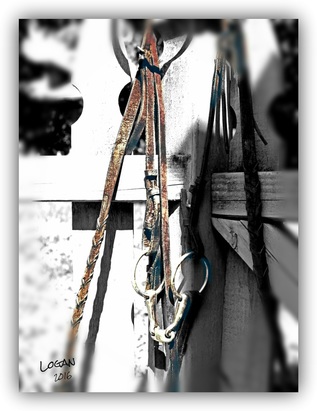
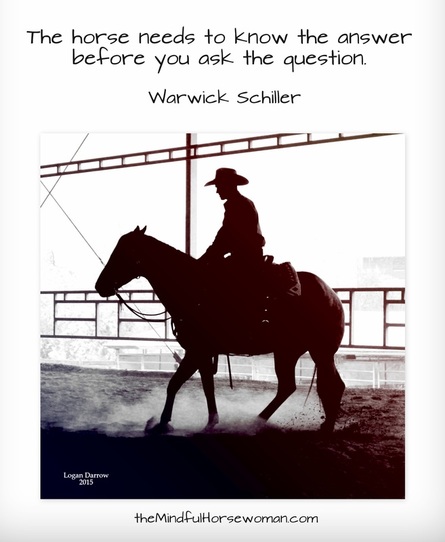
 RSS Feed
RSS Feed
